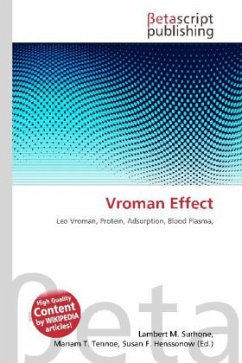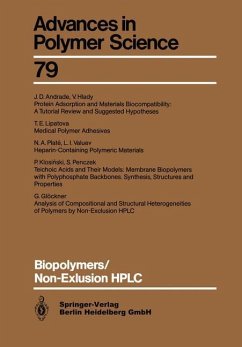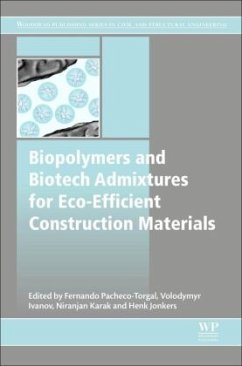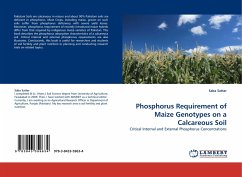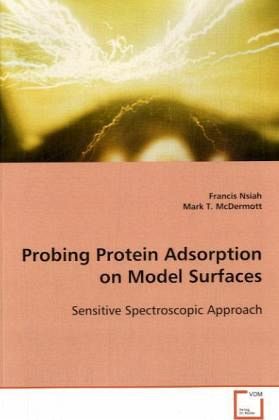
Probing Protein Adsorption on Model Surfaces
Sensitive Spectroscopic Approach
Versandkostenfrei!
Versandfertig in 6-10 Tagen
32,99 €
inkl. MwSt.

PAYBACK Punkte
16 °P sammeln!
The ability to control nonspecific protein adsorptionat interfaces is a key issue in the design ofbiosensors, assays, chromatographic separations andimplant materials. The research presented in thismanuscript focuses on the effect of surfacecomposition on the properties of adsorbed proteinlayers and the probing of protein-proteininteractions both on adsorbed surfaces and insolution. Monolayers of alkanethiols on gold formedfrom solution self-assembly and microfluidicpatterning using poly(dimethyl) siloxane (PDMS)served as platform for protein adsorption. We areemployed surface plasma resonance...
The ability to control nonspecific protein adsorption
at interfaces is a key issue in the design of
biosensors, assays, chromatographic separations and
implant materials. The research presented in this
manuscript focuses on the effect of surface
composition on the properties of adsorbed protein
layers and the probing of protein-protein
interactions both on adsorbed surfaces and in
solution. Monolayers of alkanethiols on gold formed
from solution self-assembly and microfluidic
patterning using poly(dimethyl) siloxane (PDMS)
served as platform for protein adsorption. We are
employed surface plasma resonance (SPR) imaging and
infrared reflection absorption spectroscopy (IRRAS)
to probe the conformation and orientation of adsorbed
proteins, as well as, the characterization of protein
layers.
at interfaces is a key issue in the design of
biosensors, assays, chromatographic separations and
implant materials. The research presented in this
manuscript focuses on the effect of surface
composition on the properties of adsorbed protein
layers and the probing of protein-protein
interactions both on adsorbed surfaces and in
solution. Monolayers of alkanethiols on gold formed
from solution self-assembly and microfluidic
patterning using poly(dimethyl) siloxane (PDMS)
served as platform for protein adsorption. We are
employed surface plasma resonance (SPR) imaging and
infrared reflection absorption spectroscopy (IRRAS)
to probe the conformation and orientation of adsorbed
proteins, as well as, the characterization of protein
layers.



